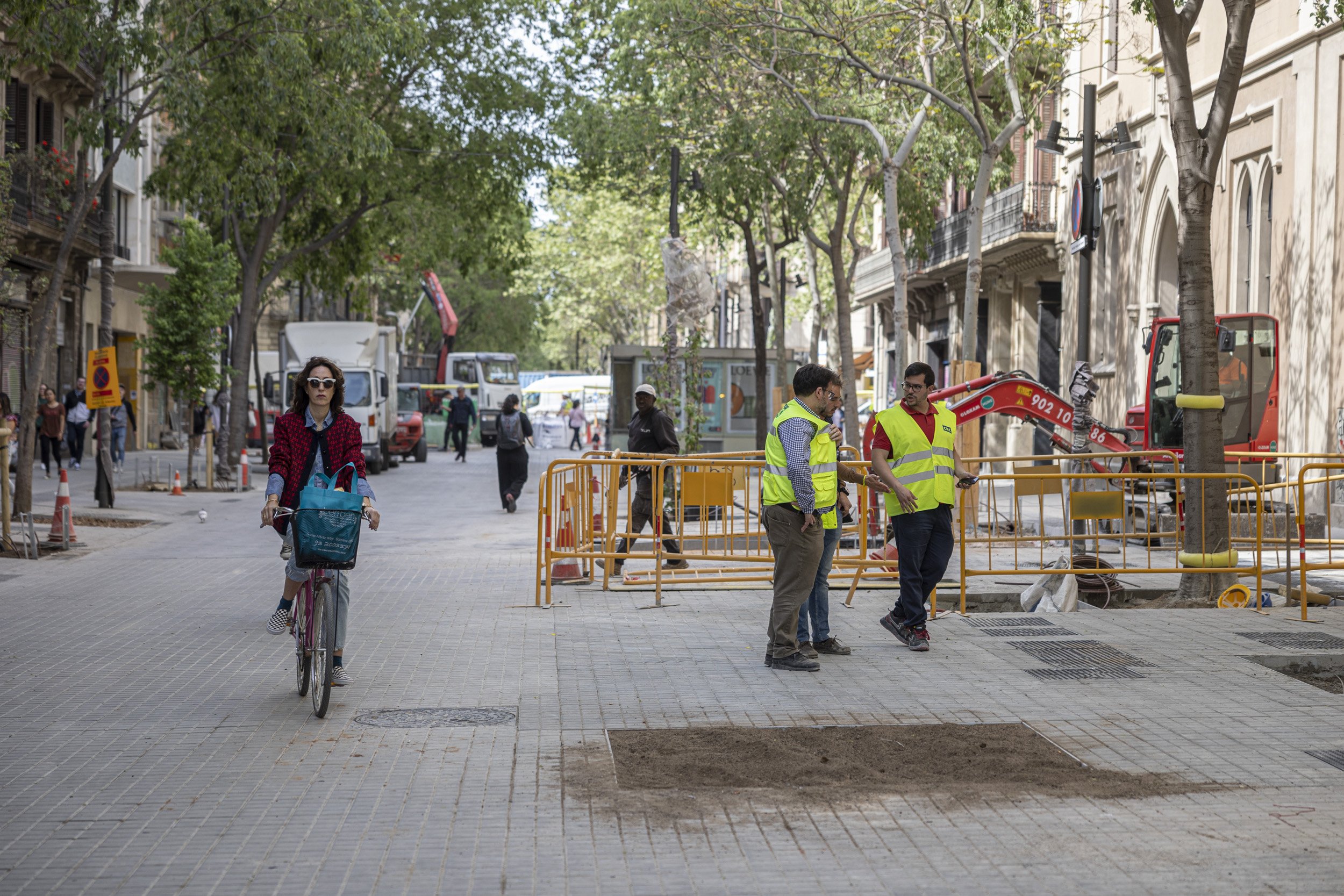The pedestrianized "Green Axis" developed in Carrer Consell de Cent in Barcelona, the most visible part of the implementation of the so-called superblock model in the Eixample district and promoted under the council administration of former mayor Ada Colau, may have to be returned to the state it was in previous to the huge planning reforms, after a Barcelona adminstrative disputes court ruled against the approval of the Green Axis and ordered to "return the developments to the state they were in prior to their approval", after deciding in favour of the appeal lodged by the Union of Commercial Tourism Areas of Barcelona (Barcelona Oberta). In the ruling, the judge found that the approval of the reconstruction work meant that the city's General Metropolitan Plan was modified without the city having followed the procedure established for such modifications. Despite the ruling, however, the works have already been completed. The ruling has led to a wave of indignation directed at former mayor Colau from opposing political groups, while the current Barcelona council led by Jaume Collboni (Catalan Socialists) which took power from its former partners in the city government after the May 28th municipal election, has announced that it will appeal the ruling.
The content of the sentence, as it stands, obliges the city to restore Carrer Consell de Cent to its state prior to the Green Axis redevelopment, which would mean new investment first to undo the current pedestrianized area and then re-asphalt the street and recover the lanes for traffic and parking use. However, the current Barcelona city council, under Catalan Socialist mayor Jaume Collboni, has already announced it will appeal the ruling. The first deputy mayor and councillor responsible for planning, Laia Bonet, has said the current council will present an appeal to "defend the legality and good work of the legal services of this house". Bonet stated that the municipal government was still analyzing the ruling, and spoke up for the correctness of the work done from a technical point of view, while also accusing the Socialists' former partners in the previous council, Barcelona en Comú, of "judicializing" the process of urban transformation.
The group which presented the case against the Green Axis, the commerce-based Barcelona Oberta, together with the employers' group Foment del Treball, has stressed, through a statement, that the Barcelona city council "acted badly, and that civil society called for caution with these actions". That is why they assert that the ruling indicates that "the planning of the Barcelona's super-blocks has been carried out with complete independence from city plans and the Metropolitan General Plan has not been respected". "We understand that this ruling and the motivations may have elements of common consideration with other redevelopments being carried out in the city, as is the case of the reform of Via Laietana, with its known effects on mobility", says the same body.
Rain of complaints
In fact, the Barcelona Oberta case is one of several suits filed against the implementation of the Superblock in the Eixample district. Another which also stands out is that presented by the chief architect of former mayor Pasqual Maragall, Josep Antoni Acebillo, against the then-mayor of Barcelona, Ada Colau, and her deputy mayor for planning, Janet Sanz, for an urban planning crime and another of misuse of public funds on the superblocks or green axes of the Eixample.
In that complaint, Acebillo called for the precautionary paralysis of the works on the superblocks to "avoid the full consummation" of the crimes that he considered were being committed and the damages that could be caused - estimated at more than 100 million euros - while noting that it was "a manifest regulatory violation of the Land Law that could have devastating effects" both for individuals and businesses in general, to the point of generating "problems of accessibility by basic services to the addresses themselves". It would also affect the public treasury, "because just the cost of removing the asphalt and then finally replacing it" would involve spending of 100 million euros.

